How Savings Accounts Help You
Saving means setting aside a portion of your income for future use. Saving money helps you build financial stability and security because these funds can be used for emergencies, major purchases, and long-term goals like retirement. While people generally only think about saving for emergencies and the future, it’s important to consider that paying off debt is also saving because paying interest to creditors adds up and reduces your purchasing power. Consumers can set up automatic withdrawals to help keep up with savings goals. Paying yourself first is a great way to prioritize your goals. You’re worth it!

Types of Savings Accounts
Savings accounts are a safe place to keep money intended for short-term needs like an emergency fund or saving for larger purchases like a down payment for a home. A traditional credit union savings account usually will earn interest at a lower rate, but typically won’t require a large initial deposit to start the account. Look for the best interest rates and fees when choosing a savings account. Higher interest rates mean your money will grow faster. Choosing a high-yield savings account offers a better interest rate so your money will grow faster. However, while these accounts can grow faster, there may be limits such as not being able to transfer funds as quickly or easily as a traditional savings account.

Types of Accounts
Money Market Accounts
Money market accounts include features of a regular savings accounts and checking accounts. You can earn interest on your savings with rates that are typically better than regular savings accounts and some offer rates similar to high-yield savings accounts. You may also be able to write checks from your account or access funds with an ATM or debit card. However, similar to regular or high-yield savings accounts, you may need a larger initial deposit to start an account and there may be more limitations to accessing or transferring your money.
Certificates of Deposit
Certificates of Deposit or CDs require leaving your money in an account for a specified period of time. During that time, your money earns interest and, when the CD matures, you typically can withdraw your savings or roll it into a new CD. That sets these accounts apart from other types of savings' accounts since there’s a time factor at work. CDs can be a good choice for growing your money when you do not need immediate access to it.
Opening a Savings Account
To open an individual savings account, in most cases you will need two forms of government-issued ID, an application and an initial deposit. The same requirements apply for joint accounts, where all parties will need to provide identification. For minors, the co-owner will need to provide identification and likely provide some information about the child's birthday or social security number. For undocumented immigrants, requirements may be slightly different. Check with your credit union to learn more. When you are opening a savings account, be sure to look for the best interest rates and fees. Higher interest rates mean your money will grow faster.
Issues With Savings Accounts and How to Address Them
Savings accounts are a safe place to start building wealth or an emergency fund. Interest earned on these accounts may seem low, but over time it will add up. Credit unions typically have a low minimum balance requirement for savings accounts and may waive the fee if the balance is maintained.
While the interest from savings accounts can increase your balance without you doing anything, you typically won’t earn a lot of money this way. Unlike investment accounts, savings accounts won’t make you rich. If you want to do more than save to build wealth, consider opening a high yield savings account or investing. Consult with your local credit union to learn if they offer a high yield savings account option.
Tips for Saving Money
The first step in building wealth is to start saving, even if it is a small amount. At many credit unions you can open a savings account with as little as $5.00. Using services like direct deposit or taking time to plan and create budgets will help you focus on reaching your goals.
Creating a budget allows you to track, review, and change your spending each month. One method is the 50-20-30 budget rule.
- Apply 50% of your take-home pay to needs, such as your mortgage or rent, utilities, groceries, and transportation
- Apply 20% to savings, investments, and debt payments
- Apply no more than 30% to your wants or flexible spending, such as travel or entertainment
You can adjust the numbers so they work for you.
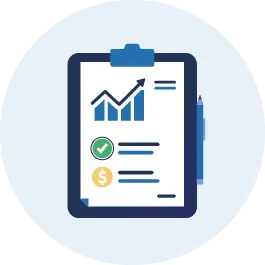
Set aside what you can each paycheck and gradually increase as you get more comfortable. Make it automatic so funds transfer from your checking to your savings account, so you don't have to think about it. NCUA’s Money Basics Guide to Saving and Budgeting can help.
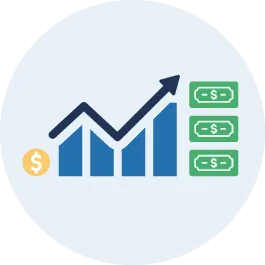
A solid emergency fund is important to have for unexpected expenses and financial emergencies and for developing long-term financial security. While it is recommended that you save six months of living expenses saved, start off by building a fund of $1,000. Then, continue to add consistent, small amounts to reach your larger goal.
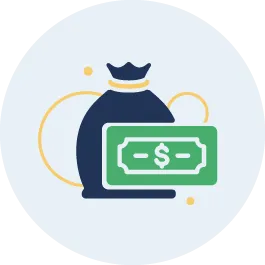
Whether it's managing debt, buying a house or car, or an emergency fund, setting financial goals will help motivate you to save more. Specify how much you want to save, and then work incrementally towards saving that amount.
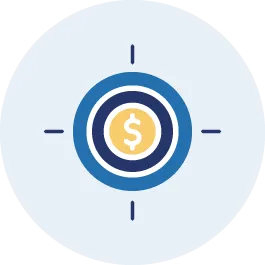
Keep your savings in an insured account at a credit union or other financial institution. Learn more about how your money is protected in a credit union on our Share Insurance page.

It's important to keep some of your savings in an easily accessible account, like a savings account, so you can access it quickly in an emergency.
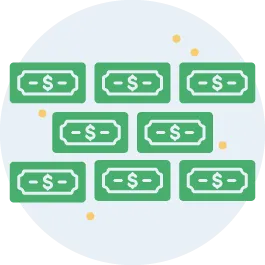
Frequently Asked Questions
When opening a checking account, the credit union will ask whether you wish to join their overdraft program for one-time debit card and ATM transactions. If you agree, the credit union will cover the transaction and impose an overdraft fee, which is detailed in their fee schedule and the opt-in authorization form. To illustrate how this might affect you, consider this scenario: you decide to opt into the overdraft program, and you’re at your favorite coffee shop. Let's say you have an available balance of $1.40 in your checking account while the coffee costs $3.00. When the clerk processes your debit card, the $3.00 purchase exceeds your available balance. Because you opted in, you authorized the credit union to cover the coffee purchase and charge you an overdraft fee as a result. Some fees can reach as high as $40 per overdraft, making that cup of coffee cost you $43 in total.
To prevent overdraft and non-sufficient funds (NSF) fees, it's essential to monitor your account balance diligently. Consider enrolling in your credit union's low balance alerts; these notifications can inform you when your account is at risk of overdraft. Additionally, regularly reconcile your checkbook by keeping a record of your balance, transactions, and automatic payments. You might also think about using cash for your purchases, maintaining a buffer in your checking account, or connecting your checking account to another account or a line of credit offered by the credit union. Consult with your credit union representative for further guidance on how to set up these links.
Check your membership account agreement to make sure you understand when your credit union will impose these fees and how it defines an “actual” versus an “available” credit balance. In general, an actual balance includes any pending transactions that have not yet posted, while an available balance reflects the amount of money in your account that you can use without incurring an overdraft or nonsufficient funds fee. It's important to note that the actual balance does not account for paper checks you've written, automatic withdrawals from your account, or recurring debit card transactions, such as payments you've authorized for your car or home insurance. As a result, the actual balance may appear higher than the amount that is available to you without overdrawing your account.
Yes! If you can't review all the disclosures right away, it's important to prioritize those for the products you intend to use immediately. Before using a service or applying for a product, make sure to review other relevant disclosures. For example, when you open a savings account, it’s crucial to read the Truth in Savings disclosures, as they contain important information regarding any fees the credit union might charge, such as fees for dormant accounts, returned checks, insufficient funds, and fund deposit procedures. Additionally, these disclosures provide key details about using your debit and ATM cards, including any associated fees. The Electronic Fund Transfer Act also offers valuable information about how overdraft and non-sufficient funds fees may impact your account, as well as how the credit union calculates your actual and available balances for withdrawals. Furthermore, the disclosures will guide you on what to do if you notice an unauthorized transaction on your account and how to report it.
Consumers in the United States send billions of dollars to friends, family and businesses domestically and in other countries. There are two types of wire transfers domestic and remittance transfers also known as “international wires” or “international money transfers.” Domestic wire transfers move money from one account to another within the same country, while international transfers involve money moving from one country to another.
As with many products or services, there are fees, taxes, and other costs associated with conducting the transaction. Many states have consumer protection laws in place to help monitor and ensure proper disclosure of these costs. However, international money transfers have fallen largely outside the scope of federal consumer protection laws. In 2010, the Dodd-Frank Wall Street Reform and Consumer Protection Act expanded the Electronic Funds Transfer Act to establish minimum federal consumer protections for remittances.